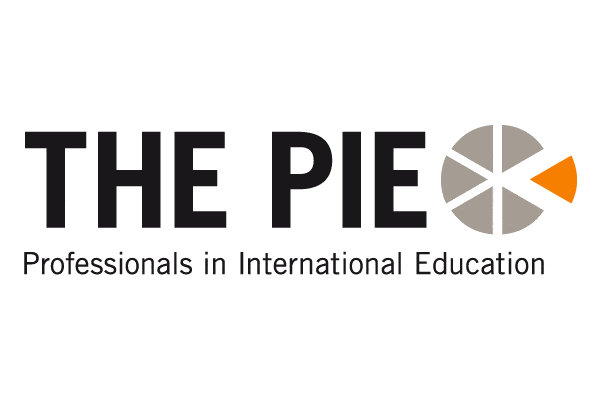International education is about more than academics; it’s about creating opportunities, breaking barriers, and inspiring change. Few individuals embody this mission as fully as Hannah Merchant, whose dedication to diversity, equality, and inclusion in the international education sector has earned her significant recognition. In August, Hannah joined The PIE team, and by September 26, she had received an accolade at the University of Liverpool’s Alumni Awards for her exceptional contributions to international education.
A graduate of the University of Liverpool in 2022, Hannah’s trajectory has been swift yet profoundly impactful. Before joining The PIE, she served as a global engagement and project officer at Universities UK International (UUKi). Her role involved leading international research delegations alongside vice-chancellors, forging and strengthening academic partnerships worldwide. The University of Liverpool lauded her efforts in helping the UK rebuild relationships after Brexit and in navigating its reassociation with Horizon Europe, the EU’s research and innovation program. Hannah’s work showcases how careers in international education require not just expertise but the ability to navigate complex international landscapes while maintaining a human-centred approach.
Her story is a reminder that international education is more than a field. It is a space where individuals can drive systemic change, influence policy, and empower learners worldwide. Hannah’s journey is proof that impactful work in this sector stems from combining professional skill with authentic compassion.
Table of Contents
International Education in Action: Connecting Institutions and Communities
Hannah’s career demonstrates that international education thrives at the intersection of policy, collaboration, and human engagement. At UUKi, she contributed to rebuilding international academic relationships, fostering sustainable partnerships that can withstand political and economic shifts. Her efforts illustrate the importance of education for sustainable development, emphasising initiatives that not only respond to immediate needs but also build long-term resilience for students and institutions alike.
Beyond institutional work, Hannah invests in her local community. She mentors students through IntoUniversity, a program dedicated to supporting young people from underrepresented backgrounds. By guiding students to access higher education, she contributes to sustainable education practices that create generational impact. Similarly, her volunteering with Refugee Community and Refugee Women Connect demonstrates how international education principles can be applied to humanitarian contexts. By helping refugees integrate into new societies, she highlights the intersection of social justice and education, showing how empowerment through learning can transform lives.
Through these actions, Hannah exemplifies that international education is not confined to classrooms or policy papers. It is lived through mentorship, volunteerism, and engagement with the challenges learners face in diverse contexts. Her story underscores a central lesson: sustainable education requires combining structural initiatives with personal commitment.
The Role of Government and Funding in Shaping International Education
While individual efforts are vital, systemic support is equally crucial. Hannah’s work underscores how government funding for education can influence opportunities in international education. Funding streams shape research collaborations, student mobility programs, and initiatives aimed at inclusivity and diversity. Hannah’s advocacy illustrates how professionals in international education can navigate these systems to ensure that financial resources translate into meaningful outcomes.
By effectively leveraging government funding, she has been able to support projects that bridge gaps between institutions and communities, ensuring that programs are not only well-resourced but also equitable. This approach aligns with emerging edtech trends globally, which use technology to expand access to education, support remote learning, and create innovative pathways for students across borders.
Her work reminds us that careers in international education demand both strategic thinking and empathy. Understanding funding mechanisms, policy environments, and technological innovations is as important as understanding the learners themselves. Hannah demonstrates how blending these elements can produce sustainable, inclusive, and transformative educational experiences.

Mentorship, Volunteering, and Creating Lasting Impact
International education is also about human connections, and Hannah’s story is a vivid example of this principle. She volunteers with Refugee Community and Refugee Women Connect, providing guidance and emotional support for individuals navigating complex transitions. Additionally, she has contributed to humanitarian work with the British Red Cross, including efforts following the Grenfell Tower tragedy.
These experiences reveal a deeper truth about careers in international education: impact is measured not just by policies enacted or partnerships forged, but by the tangible improvements in people’s lives. Mentorship, advocacy, and community involvement form the bedrock of sustainable education practices. Hannah’s recognition by the University of Liverpool highlights the value of these contributions and sets an example for other emerging professionals.
Her mentorship with young students from underrepresented backgrounds also demonstrates the ripple effect of international education. By equipping these students with guidance, confidence, and access to higher education, she is contributing to a cycle of empowerment; one that is essential to the broader goals of education for sustainable development.
Read Also: GEA Expands into Turkey with EgitimAL Merger to Enhance Global Education Access
Recognition and Motivation: Awards that Inspire Action
Hannah’s accolade at the University of Liverpool’s Alumni Awards is not just a personal achievement; it is a public acknowledgement of how international education work can inspire systemic change. Speaking about the award, she shared:
“This award inspires me to keep uplifting others, especially those from underrepresented backgrounds. Mentoring young people through IntoUniversity and volunteering locally to assist vulnerable communities are ways I can give back. It’s a powerful reminder that the opportunities I’ve been fortunate enough to receive should be passed on and kept open for those who follow.”
Her words emphasise the essence of sustainable education practices, initiatives, and mentorship that outlive the individual, creating long-term benefits for communities and future generations. Recognition in international education is about highlighting models that others can emulate, building momentum for inclusive and equitable programs.
Bridging Policy, Practice, and Human Connection
Beth Kennedy, editor of The PIE News, emphasised the importance of Hannah’s emerging career:
“All of us at The PIE are incredibly proud that Hannah’s work has received recognition. We look forward to seeing what she accomplishes next.”
This acknowledgement reinforces a key lesson: careers in international education are multifaceted. They involve understanding policy, managing partnerships, mentoring students, and responding to humanitarian crises. Hannah’s ability to navigate these realms demonstrates how compassion and expertise must coexist to make a meaningful impact.
Through her work, Hannah bridges global initiatives and local action, showing that international education is not abstract; it is a tangible force shaping lives, institutions, and societies. Her engagement exemplifies how emerging leaders in the sector can integrate edtech trends globally with human-centred approaches to expand access and inclusivity.

Inspiring Change Through Advocacy and Community Engagement
Hannah’s journey highlights the power of education for sustainable development. She has proven that effective international education is not just about implementing programs; it is about advocating for systemic change, mentoring the next generation, and using available tools and resources to maximise impact.
Her personal and professional efforts remind us that government funding for education and edtech trends globally are most effective when paired with human insight and commitment. Sustainable education practices thrive when they combine strategic implementation with empathy, advocacy, and the persistent pursuit of inclusivity.
Hannah’s example is a blueprint for anyone looking to pursue careers in international education. It shows that you can impact the field through professional expertise, voluntary work, and mentorship while remaining committed to human-centred values.
Lessons from Hannah Merchant’s Journey in International Education
Hannah Merchant’s story is a testament to the transformative power of international education. Through mentorship, advocacy, and active participation in community and institutional projects, she demonstrates how one individual can drive systemic change while uplifting countless others.
Her work exemplifies the intersection of policy, practice, and human empathy, showing that education for sustainable development and sustainable education practices are not abstract concepts; they are lived experiences. By integrating government funding for education effectively and leveraging edtech trends globally, Hannah has made a lasting impact on students, institutions, and communities.
For anyone seeking to pursue careers in international education, her journey offers an inspiring blueprint: combine skill, strategy, and compassion to create opportunities that endure and inspire.
International education is more than a career or a mission; it is a movement toward equitable access, systemic reform, and sustainable impact. Hannah Merchant embodies that movement, reminding us that meaningful change is possible when dedication meets opportunity.

